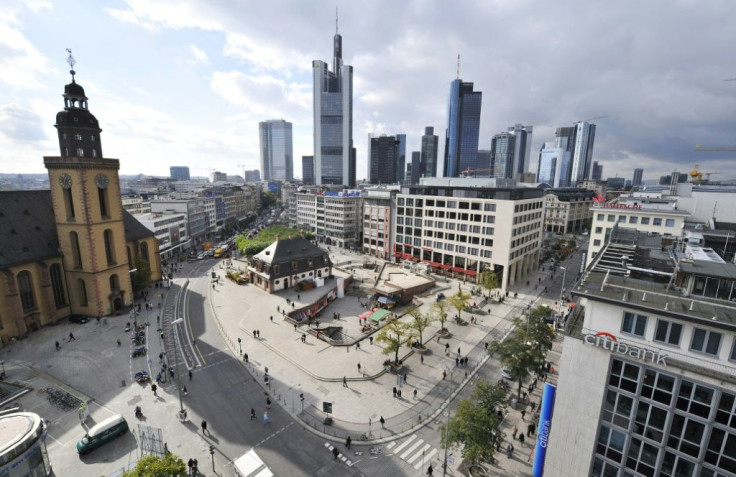IMF Cuts Eurozone Growth Outlook As Germany Lags

The IMF slashed its growth estimates for the eurozone on Tuesday, which was dragged lower by export-powerhouse Germany, Europe's biggest economy and a casualty of the global trade war.
Along with emerging economies, the IMF said the eurozone was a key contributor to the cooling global economy -- with matters possibly to get worse.
Britain's painful divorce from the EU was also a destabilising factor, the IMF said, with non-euro United Kingdom also stuck in a low-growth gear, though no different than continental Europe.
"Downside risks to the outlook are elevated," said Gita Gopinath, the IMF's chief economist.
"Trade barriers and heightened geopolitical tensions, including Brexit-related risks, could further disrupt supply chains and hamper confidence, investment, and growth," she said.
The IMF said the eurozone would this year reach 1.2 percent, which was 0.1 points lower from its July estimate.
The growth estimate in 2020 was also slashed to 1.4 percent, down 0.2 points from the July forecast.
Worrying German growth
For Germany, growth was revised down to just 0.5 percent in 2019, 0.2 points lower than the July estimate.
This was a worrying level for an economy seen as the driver of the Europe, especially for eastern Europeans countries where German industrial giants have expanded production.
The IMF said Germany was laid low by a slumping auto market that felt the demand shock of the US-China trade war.
German automakers are also facing tighter anti-pollution costs in the wake of the Volkswagen emissions scandal.
Given the unresolved trade war, the IMF toned down its earlier prediction of a strong rebound for Germany in 2020 and predicted 1.2 growth in 2020, 0.5 points lower than the previous estimate.
UK growth lower
The growth projection for Britain, which aims to leave the European Union on October 31, was also knocked slightly lower from July.
The British economy is expected to grow 1.2 percent this year and 1.4 percent in 2020, but this was largely level with the rest of western Europe.
"The extra public spending envisaged by the government should mitigate the cost of Brexit for the economy," said the IMF report.
Given the sluggish picture, the IMF again called on countries with the means to do so to boost public investment and help stimulate the European economy.
This is a very touchy subject among eurozone members, with voters in Germany and the Netherlands loath to help eurozone countries they see as prone to spending beyond their means.
The IMF said the Italian economy would only reach middling growth, with IMF slating an expansion of 0.0 percent in 2019 and just 0.5 percent in 2020.
© Copyright AFP {{Year}}. All rights reserved.





















